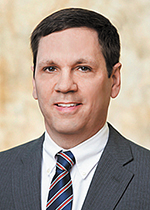In 2016, the United States Supreme Court issued its decision in Universal Health Servs. v. U.S. ex rel. Escobar which dealt, in part, with how the "materiality" requirement should be enforced in False Claims Act ("FCA") cases. The Escobar Court confirmed that the false claims at issue "must be material to the Government's payment decision in order to be actionable under the [FCA]." The Court described this standard as "demanding" and "rigorous," and explained that a material misrepresentation is one that goes "to the very essence of the bargain." According to the Court, this requirement helps ensure that the FCA does not, among other things, become an "all-purpose anti-fraud statute." The Court concluded that a misrepresentation is not material "merely because the Government designates compliance with a particular statutory, regulatory, or contractual requirement as a condition of payment. . . ." And it emphasized that there must be proof "the defendant knowingly violated a requirement the defendant knows is material to the Government's payment decision." Recently, in U.S. ex rel. Ruckh v. Salus Rehab., LLC, a federal district court in Florida reversed a $347 million jury verdict in an FCA case, demonstrating just how "demanding" and "rigorous" the materiality standard is under Escobar.
In Ruckh, a "relator" (or more commonly, a "whistleblower"), filed a qui tam lawsuit alleging that the owners and operators of skilled nursing facilities violated the FCA by seeking reimbursement for unnecessary or non-rendered services and failing to meet certain Medicaid record-keeping requirements. After a month-long trial, a jury found the defendants liable, resulting in a court-imposed judgment against them of $347,864,285 - which included "trebled" damages and penalties. The defendants filed a motion to set aside (or "vacate") the jury verdict, which the district court granted.
Applying Escobar's "demanding" and "rigorous" standard, the court found that the relator had failed to provide sufficient evidence that the subject practices were material to the government's payment decision. In doing so, the court noted that "Escobar rejects a system of government traps, zaps, and zingers that permit the government to retain the benefit of a substantially conforming good or service but to recover the price entirely - multiplied times three - because of some immaterial contractual or regulatory non-compliance."
The court gave examples of the type of evidence that would have met the Escobar standard, explaining:
[O]ne might expect evidence of whether record-keeping deficiencies have resulted in the sudden and indefinite discontinuation of payment to providers of health care services to elderly, disabled, dependent, and other especially vulnerable patients; evidence of whether, when, and to what extent, especially in dealing with a large organization that serves thousands of acute-care patients, an administrative remedy, rather than a sudden and unexpected refusal to pay, is required or preferred to address administrative non-compliance, including a record-keeping deficiency; evidence of whether governments are content -- assisted by a regime of rigorous and regular inspections, audits, and accounting -- to permit record-keeping practices that largely achieve the ends of, but differ from, the prescribed record-keeping; or evidence otherwise establishing the historical response of government to a long-standing non-compliance by a large provider of services in a pervasively regulated and monitored industry with a slim profit margin that, nonetheless, provides essential service to a large and vulnerable population without an available, alternative, health care provider.
According to the court, the "controlling question" was "the actual and expected conduct of the . . . government when confronted with the record-keeping deficiency." Because the relator offered no evidence definitively answering this question, Escobar's materiality requirement was not met.
The court then turned its attention to the knowledge component of the Escobar standard, holding that "the [FCA] requires the relator to prove . . . that the defendant knew at the moment the defendant sought payment that the non-compliance was material to the government's payment decision." The court reasoned that because the relator failed to offer sufficient evidence of materiality, she necessarily could not establish that the defendants submitted claims for payment knowing that the government would have refused to pay if aware of the subject practices. As the court put it, "with no evidence that the government[] regarded the disputed practices as material, establishing the defendants' knowledge of materiality seems at least impractical, if not impossible."
The Ruckh decision is currently on appeal to the Eleventh Circuit Court of Appeals. It comes on the heels of a Fifth Circuit appellate decision vacating a $663 million jury verdict in U.S. ex rel. Harman v. Trinity Industries, Inc. There, a jury found a violation of the FCA by a contractor for continuing to submit claims for reimbursement despite having changed the design of a highway guardrail without approval by the Federal Highway Administration (FHA). The Fifth Circuit found that because the FHA had always reimbursed for the alleged noncompliant guardrail, the change in design was not material to the government's payment decision. It will be interesting to see where the Eleventh Circuit comes down on this issue and whether it will continue the trend of courts to take seriously the Supreme Court's admonition that the materiality standard in FCA cases is "demanding" and "rigorous." In the meantime, health care providers should use this standard to their full advantage in seeking dismissal of FCA claims.
 Adam Overstreet is an attorney with Burr & Forman LLP practicing in the firm's Health Care Industry Practice Group.
Adam Overstreet is an attorney with Burr & Forman LLP practicing in the firm's Health Care Industry Practice Group.












